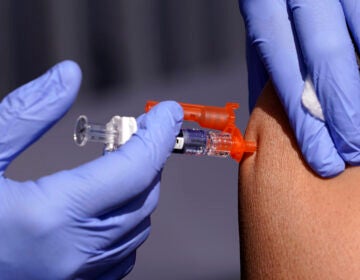Delaware prisons prep for battle on two fronts, against COVID-19 and the flu
Social distancing can be difficult in prison, but Dept. of Correction leaders in Delaware hope their plans will keep both COVID-19 and the flu at bay in the coming months.
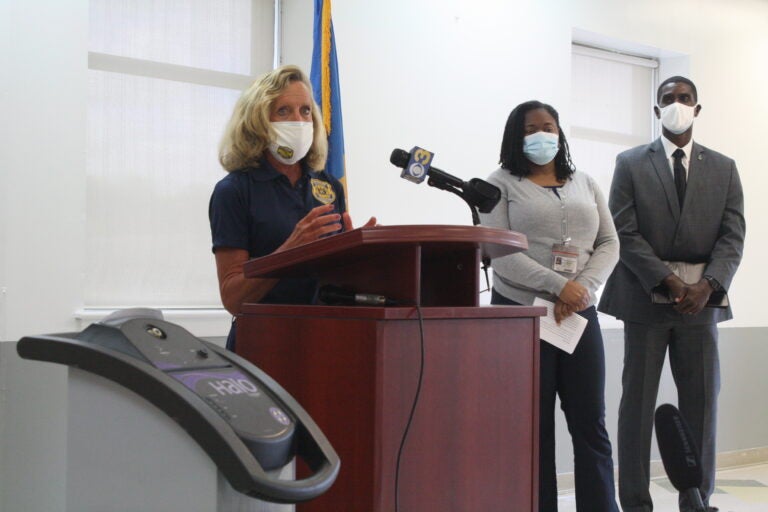
DOC Commissioner Claire DeMatteis talks about the state's effort to fight both COVID-19 and the flu in the Delaware's prisons over the next few months. (Mark Eichmann/WHYY)
People living inside Delaware’s prisons treat the threat of the coronavirus just like everybody else.
Some are very diligent about frequently cleaning their cells, or wiping down the phone before they use it. Others are less careful to avoid germs. Some are careful to wear their prison-issued face mask. Others not so much.
That’s how Dept. of Correction Commissioner Claire DeMatteis describes the attitudes of those incarcerated in Delaware.
As flu season gets underway, she’s hoping protocols put in place to protect people in prison from COVID-19 will work just as well against the seasonal flu.
It’s been three years since there’s been a flu outbreak in Delaware prisons. DeMatteis is hoping to make it four years in a row this year.
“Dealing with ‘twin-demics’ as they say, flu and COVID, is going to be a challenge, but we’re prepared for it,” she said at Hazel D. Plant Women’s Treatment Facility in New Castle. “We’ve gained so much more knowledge and expertise dealing with COVID that this is part of running a correctional facility now. Health care is part of running a correctional facility.”
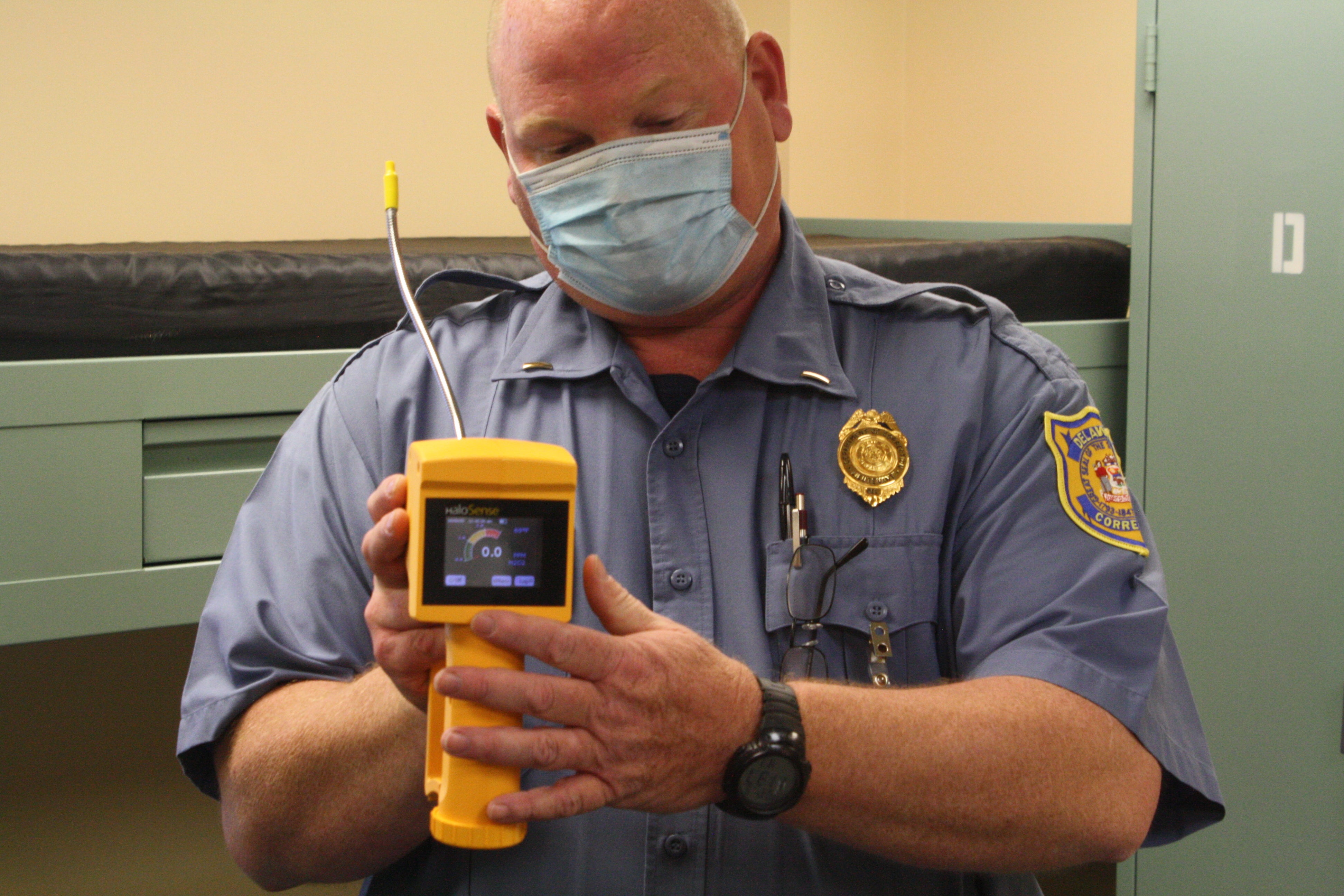
In a typical year, the number of flu cases behind bars numbers in the dozens. During an outbreak year, cases are counted by the hundreds. To make sure 2020 reflects a typical year and not an outbreak year, flu vaccinations are now underway at the state’s prisons for both correctional officers and people being held behind bars.
DeMatteis is hoping to get 60% of each group vaccinated. The top vaccination rate for those incarcerated is about 50%, while about 35% of correctional officers typically get the vaccine, she said. While neither group is being forced to get a vaccine, DOC is offering incentives for their cooperation. Incarcerated people would be able to get extra items from the prison commissary if they get a shot, and the facility with the highest rate of officers who get vaccinated will get a pizza party. “It’s motivating,” DeMatteis said.
As of September 28, 28 people incarcerated in Delaware have COVID-19, with only four showing symptoms of the virus. Twenty-four of those patients are in the work-release program at Plummer Community Corrections Center in Wilmington. Since the pandemic started, there have been 520 patients in the DOC that have recovered from the virus. Eleven have died from COVID-related causes.
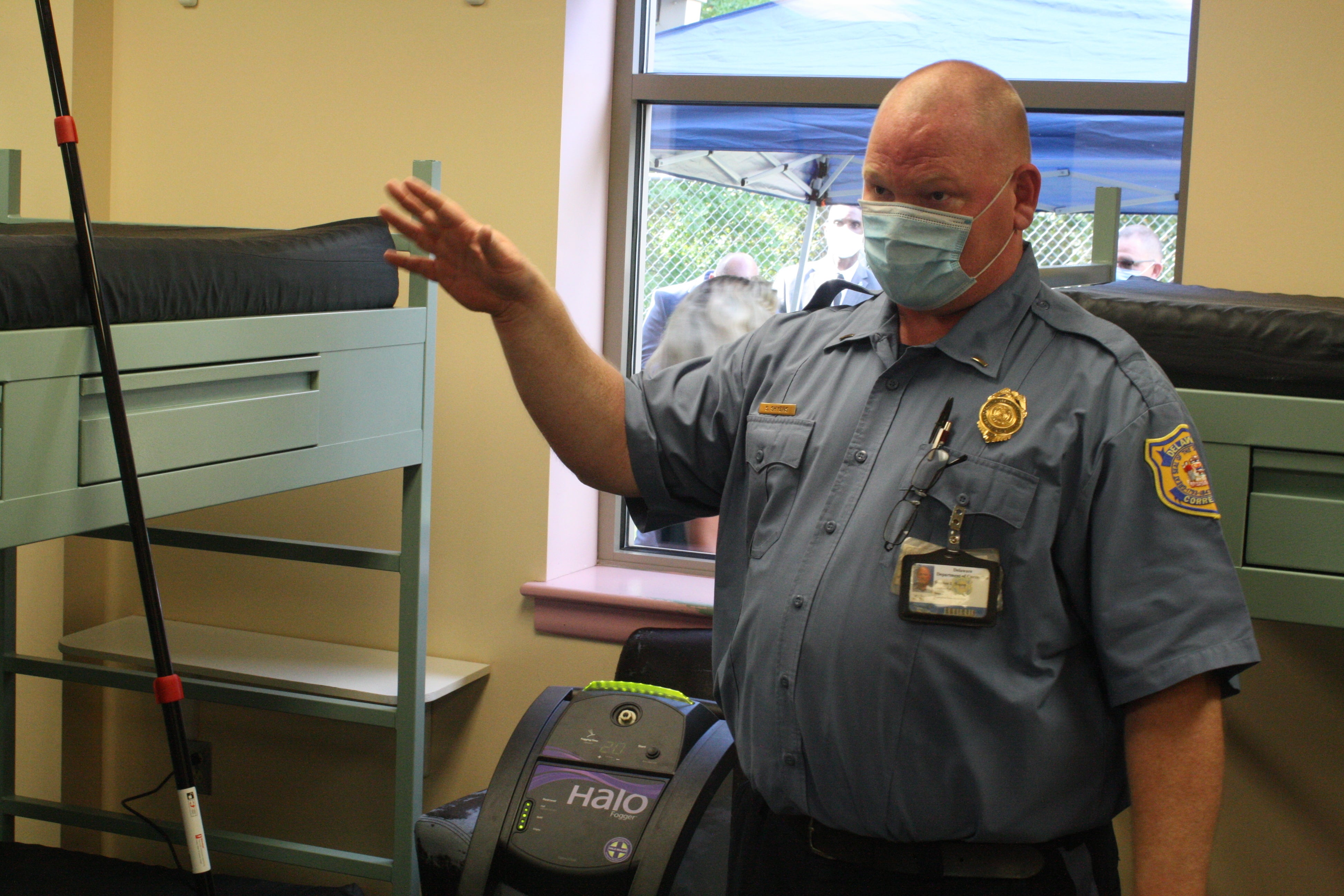
The pandemic and pending flu season have created unique challenges for the Bureau of Community Corrections, which manages those whose sentences allow them to work outside the prison during the day and return to prison at night. Bureau chief Marvin Mailey said they’ve stepped up sanitation efforts and reconfigured housing units to further separate incarcerated people from one another. “Because our offender population leave and return to the facility regularly, we have established a thorough screening and testing protocol to detect and isolate a COVID-positive offender,” he said. “We have also added temperature checks and weekly proactive COVID testing for offenders.”
When there is a positive case in the prison, it’s up to Sgt. Stephen Shyers to make sure any areas that might have been contaminated by the patient are cleaned. Monday morning, he demonstrated the fogging machine used to make that happen for prison leaders at the women’s facility in New Castle. The Halosil machine sprays a fine mist of hydrogen peroxide and antimicrobial silver ions into the air. As the mixture settles on surfaces, it kills the virus.
Sometimes he’ll set up the machine in the hallway and open all the doors in the area. “This product works so well that it gets into every room,” Shyers said. After about 90 minutes, Shyers uses another device to sample the air to make sure the level of peroxide has been lowered to a level that’s safe to breathe before moving on to the next cleaning.
He’s been DOC’s go-to guy for cleaning areas with the fogger since April, sometimes working overnights and weekend calls. With flu season ramping up and Delaware’s COVID numbers holding steady, Shyers could be as busy as ever in the coming months.
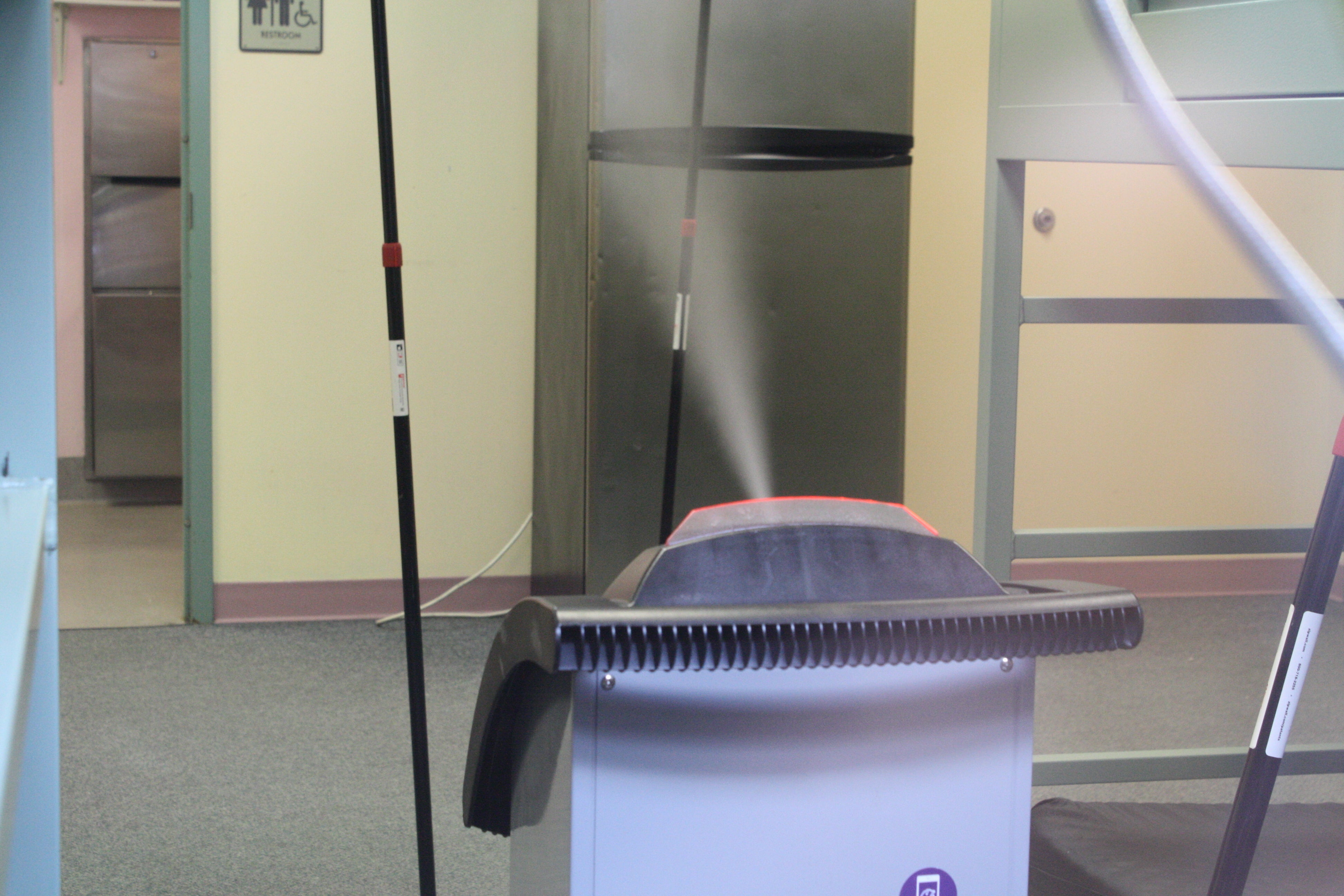

Get daily updates from WHYY News!
WHYY is your source for fact-based, in-depth journalism and information. As a nonprofit organization, we rely on financial support from readers like you. Please give today.



![CoronavirusPandemic_1024x512[1]](https://whyy.org/wp-content/uploads/2020/03/CoronavirusPandemic_1024x5121-300x150.jpg)

